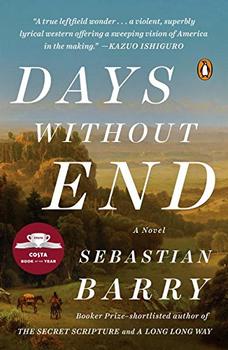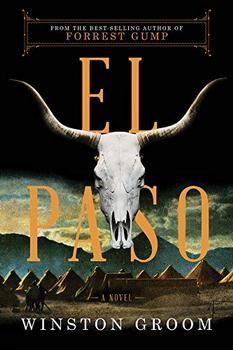Summary | Excerpt | Reviews | Beyond the book | Read-Alikes | Genres & Themes | Author Bio

Part epic of Texas, part classic coming-of-age story, part unflinching portrait of the bloody price of power, The Son is an utterly transporting novel that maps the legacy of violence in the American West.
Part epic of Texas, part classic coming-of-age story, part unflinching portrait of the bloody price of power, The Son is an utterly transporting novel that maps the legacy of violence in the American West through the lives of the McCulloughs, an ambitious family as resilient and dangerous as the land they claim.
Spring, 1849. The first male child born in the newly established Republic of Texas, Eli McCullough is thirteen years old when a marauding band of Comanches storms his homestead and brutally murders his mother and sister, taking him captive. Brave and clever, Eli quickly adapts to life among the Comanches, learning their ways and language, answering to a new name, becoming the chief's adopted son, and waging war against their enemies, including white men - which complicates his sense of loyalty and understanding of who he is. But when disease, starvation, and overwhelming numbers of armed Americans decimate the tribe, Eli finds himself alone. Neither white nor Indian, civilized nor fully wild, he must carve a place for himself in a world in which he does not fully belong - a journey of adventure, tragedy, hardship, grit, and luck that reverberates in the lives of his progeny.
Intertwined with Eli's story are those of his son, Peter, a man who bears the emotional cost of his father's drive for power, and Jeannie, Eli's great-granddaughter, a woman who must fight hardened rivals to succeed in a man's world.
Philipp Meyer deftly explores how Eli's ruthlessness and steely pragmatism transform subsequent generations of McCulloughs. Love, honor, even children are sacrificed in the name of ambition as the family becomes one of the richest powers in Texas, a ranching-and-oil dynasty of unsurpassed wealth and privilege. Yet, like all empires, the McCulloughs must eventually face the consequences of their choices. Harrowing, panoramic, and vividly drawn, The Son is a masterful achievement from a sublime young talent.
Philipp Meyer was selected in 2010 by The New Yorker as one of its "20 under 40" authors to watch, and so far he's lived up to the hype; The Son is every bit as entertaining as his debut novel, American Rust. This is historical fiction at its finest, and fans of literature written about the Old West will definitely find much to love here...continued
Full Review
(867 words)
This review is available to non-members for a limited time. For full access,
become a member today.
(Reviewed by Kim Kovacs).
One of the main characters in The Son is kidnapped by Comanches and lives as a member of the Kotsoteka tribe.
The word Comanche is thought to be a Spanish corruption of Kohmahts, the Ute term for enemy (the Ute and the Comanche conducted a sporadic 50 year war against each other during the middle of the 18th century). Those referred to as Comanches call themselves Numinu - "The People." Originally part of the eastern Shoshone nations (as evinced by their similar language and customs), their emergence as a distinct people occurred just before the turn of the 18th century and coincided with the introduction of the horse to the American Southwest around 1680 CE. The horse allowed the Comanche to expand their hunting grounds, and they ...
This "beyond the book" feature is available to non-members for a limited time. Join today for full access.

If you liked The Son, try these:

by Sebastian Barry
Published 2017
Moving from the plains of Wyoming to Tennessee, Sebastian Barry's latest work is a masterpiece of atmosphere and language. An intensely poignant story of two men and the makeshift family they create with a young Sioux girl, Winona, Days Without End is a fresh and haunting portrait of the most fateful years in American history and is a novel never ...

by Winston Groom
Published 2017
Three decades after the first publication of Forrest Gump, and seventeen years since his last novel, Winston Groom returns to fiction with this sweeping American epic.
Censorship, like charity, should begin at home: but unlike charity, it should end there.
Click Here to find out who said this, as well as discovering other famous literary quotes!